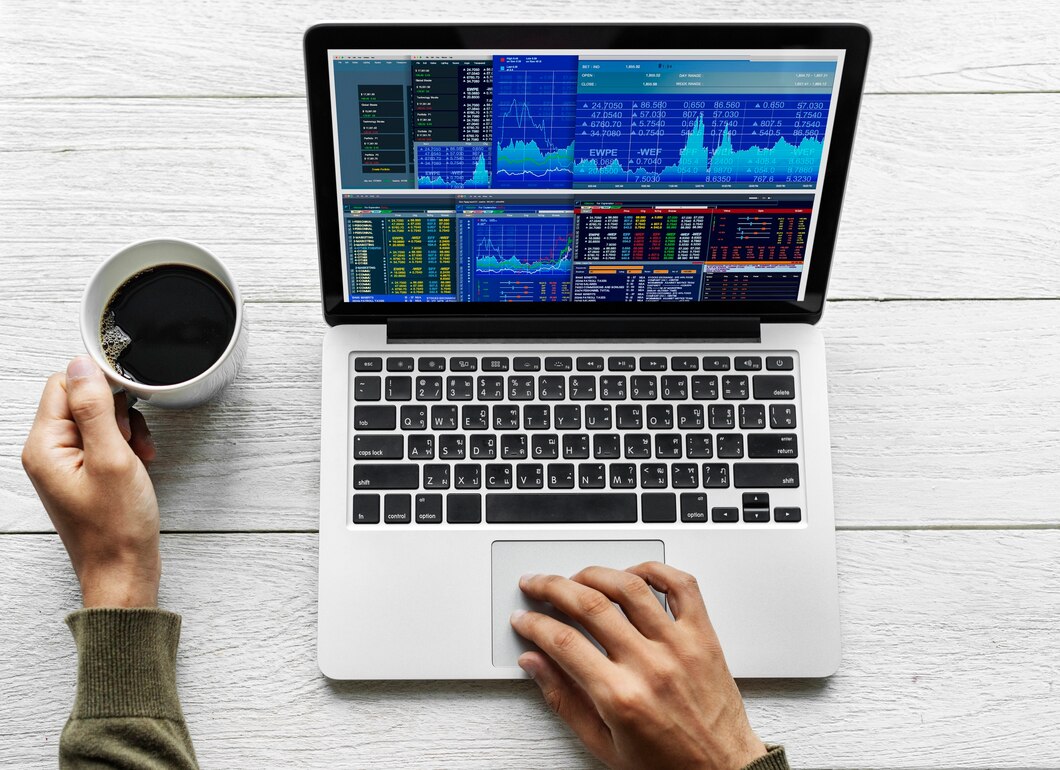Trading on a demo account is a valuable experience for individuals stepping into the world of financial markets. It offers a risk-free environment where traders can experiment with various strategies and techniques without the fear of losing real money. The advantages of demo trading extend far beyond just practice; they provide a solid foundation for understanding the complexities of trading and honing one’s skills for success in live markets.
Introduction to Trading on a Demo Account
Before diving into the intricacies of demo trading, it’s essential to grasp the concept behind it. A demo account essentially mirrors the live trading environment but operates with virtual funds. It’s a simulated platform offered by brokerage firms to allow traders to familiarize themselves with the dynamics of trading without incurring any financial risk. This simulation includes real-time market data, price quotes, and execution mechanisms, providing users with an authentic trading experience.
Understanding Demo Accounts
What is a Demo Account?
A demo account serves as a sandbox for traders to explore different financial instruments and trading strategies. It offers a safe space where users can practice executing trades, analyzing market trends, and managing positions without worrying about the implications of financial losses. Essentially, it’s a risk-free playground where traders can learn, adapt, and evolve without any pressure.
How Does a Demo Account Work?
The mechanics of a demo account are quite straightforward. Upon registration with a brokerage firm, users are typically provided with a virtual balance to simulate real trading scenarios. This balance can vary depending on the platform, but it’s designed to mimic the capital one would have in a live trading account. Traders can then use this virtual capital to buy and sell assets, monitor performance, and test different strategies in real-time market conditions.
Advantages of Trading on a Demo Account
Risk-Free Environment
Perhaps the most significant advantage of demo trading is the absence of financial risk. Since traders operate with virtual funds, they can explore various trading approaches and experiment with different strategies without the fear of losing money. This risk-free environment allows traders to step out of their comfort zones, try new techniques, and learn from their mistakes without incurring any financial consequences.
Learning and Skill Development
Demo accounts are invaluable tools for beginners looking to familiarize themselves with the intricacies of trading. They provide a platform for learning the basics of market analysis, technical indicators, and risk management strategies. Through hands-on experience, traders can develop the skills and confidence necessary to navigate the complexities of live markets effectively.
Understanding Market Dynamics
Trading on a demo account offers a unique opportunity to observe and understand market dynamics in real-time. Traders can analyze price movements, identify trends, and study the impact of economic events on asset prices without risking capital. This firsthand experience enables traders to develop a deeper understanding of market behavior and make informed decisions when trading live.
Testing Strategies
Another significant advantage of demo trading is the ability to test trading strategies in a risk-free environment. Traders can experiment with different approaches, assess their effectiveness, and fine-tune their tactics based on the outcomes. Whether it’s trend following, breakout trading, or risk reversal strategies, demo accounts provide a platform for refining techniques and optimizing trading performance.
Access to Real-Time Data
Trading on a demo account grants access to a wealth of real-time data, empowering traders with the information needed to make informed decisions. Here are some key types of real-time data available on demo accounts:
- Price Quotes: Demo accounts provide live price quotes for various financial instruments, allowing traders to monitor market movements and identify potential trading opportunities.
- Charts and Technical Indicators: Traders can access interactive charts and utilize technical indicators to analyze price trends, patterns, and signals for entry and exit points.
- News Feeds and Economic Calendars: Demo platforms often feature integrated news feeds and economic calendars, enabling traders to stay updated on market news, events, and economic releases that may impact asset prices.
Real-Time Data Features Table:
| Feature | Description | Benefit |
| Price Quotes | Live quotes for financial instruments such as stocks, currencies, and commodities. | Helps traders monitor market movements and identify potential trading opportunities. |
| Charts and Indicators | Interactive charts with technical indicators like moving averages, RSI, and MACD. | Enables traders to perform technical analysis and identify trends and patterns. |
| News Feeds | Integrated news feeds providing updates on market events, economic releases, and geopolitical developments. | Keeps traders informed about factors influencing asset prices and market sentiment. |
Building Confidence
Confidence is a crucial attribute for successful trading, and demo accounts play a vital role in its development. Here are some ways in which demo trading helps build confidence:
- Practice Executing Trades: By executing trades in a simulated environment, traders gain confidence in their ability to enter and exit positions effectively.
- Testing Strategies: Trying out different trading strategies and observing their outcomes instills confidence in one’s analytical abilities and decision-making process.
- Learning from Mistakes: Making mistakes on a demo account without facing financial consequences builds resilience and confidence to bounce back and learn from errors.
Exploring Different Markets
Demo accounts offer the flexibility to explore various financial markets and instruments without any risk. Here are some markets and instruments traders can explore on demo accounts:
- Stocks: Traders can practice buying and selling shares of publicly traded companies listed on stock exchanges worldwide.
- Forex: Demo accounts allow traders to trade currency pairs in the foreign exchange market, exploring different currency combinations and exchange rate dynamics.
- Commodities: From gold and silver to oil and natural gas, demo trading enables traders to speculate on the prices of various commodities without the need for physical ownership.
Overcoming Psychological Barriers
Trading involves managing emotions and psychological barriers that can impact decision-making. Demo trading helps traders overcome these barriers through:
- Emotional Regulation: By experiencing market fluctuations in a controlled environment, traders learn to regulate emotions such as fear, greed, and impatience.
- Stress Management: Practicing under simulated market conditions helps reduce stress and anxiety associated with live trading, allowing traders to make clearer and more rational decisions.
- Building Resilience: Facing challenges and setbacks on a demo account helps build resilience and mental toughness, preparing traders to cope with the uncertainties of live markets.
Getting Familiar with Trading Platforms
Familiarity with trading platforms is essential for effective execution and decision-making in the financial markets. Demo accounts serve as invaluable tools in facilitating this familiarity by providing users with a risk-free environment to explore the intricacies of different trading platforms. Here’s a detailed overview of how demo accounts help traders become acquainted with trading platforms:
| Feature | Description | Benefit |
| Navigating User Interfaces | Traders can explore the various features and functionalities of trading platforms, including order placement, charting tools, and account management. | Enables traders to understand the layout and navigation of the platform, enhancing their user experience. |
| Practicing Order Execution | Demo accounts allow traders to practice executing orders and managing trades, helping them become proficient in navigating the trading platform efficiently. | Helps traders develop confidence in their ability to execute trades accurately and timely in live markets. |
| Utilizing Technical Analysis Tools | Traders can experiment with a wide range of technical analysis tools and indicators available on trading platforms, enabling them to identify trading opportunities and patterns. | Enables traders to refine their technical analysis skills and make informed decisions based on market trends. |
Navigating User Interfaces:
Trading platforms often feature complex user interfaces with various menus, tabs, and tools. Demo accounts enable traders to navigate these interfaces seamlessly, allowing them to familiarize themselves with the layout and functionality of the platform. By exploring different features such as order placement, charting tools, and account management options, traders can gain a comprehensive understanding of how to utilize the platform efficiently.
Practicing Order Execution:
Order execution is a critical aspect of trading that requires precision and speed. Demo accounts provide traders with the opportunity to practice executing orders in a risk-free environment. By placing various types of orders, managing positions, and monitoring trade executions, traders can hone their skills and develop confidence in their ability to execute trades accurately and timely when trading live.
Utilizing Technical Analysis Tools:
Technical analysis plays a crucial role in identifying market trends, patterns, and potential entry and exit points. Demo accounts offer traders access to a wide range of technical analysis tools and indicators available on trading platforms. From simple moving averages to complex oscillators, traders can experiment with different tools to analyze price movements and identify trading opportunities. By mastering the use of technical analysis tools on a demo account, traders can enhance their ability to interpret market data and make informed trading decisions in real-time scenarios.
In conclusion, demo accounts serve as invaluable resources for traders looking to familiarize themselves with trading platforms. By providing a risk-free environment to explore user interfaces, practice order execution, and experiment with technical analysis tools, demo accounts empower traders to develop the skills and confidence needed to navigate live markets effectively.
Setting Realistic Goals
Setting realistic goals is paramount for long-term success in trading. Demo trading aids in goal setting by:
- Defining Objectives: Traders can outline specific objectives and milestones they aim to achieve, such as consistent profitability, risk management, and portfolio growth.
- Measuring Progress: Demo accounts provide performance metrics and analytics that enable traders to track their progress towards achieving their goals over time.
- Adjusting Strategies: Based on performance and outcomes, traders can fine-tune their strategies and goals to align with evolving market conditions and personal aspirations.
Developing Discipline and Patience
Discipline and patience are virtues that separate successful traders from the rest. Demo trading fosters discipline and patience by:
- Following Trading Plans: Traders learn to adhere to predefined trading plans and strategies, sticking to established rules and protocols even in the face of market volatility.
- Exercising Restraint: By resisting impulsive decisions and maintaining composure during periods of uncertainty, traders develop the discipline needed to stay focused on long-term objectives.
- Embracing Patience: Demo trading teaches traders to wait for opportune moments and avoid rushing into trades, emphasizing the importance of patience in achieving sustainable results.
Monitoring Progress and Improvement
Traders can track their progress and measure improvement over time by reviewing their trading history and performance metrics on demo accounts. This reflective practice aids in continuous learning and refinement.
Transitioning to Live Trading
Once traders feel confident in their abilities and strategies, they can transition to live trading with real money. The experience gained from demo trading prepares them to tackle the challenges and opportunities of live markets effectively.
In conclusion, trading on a demo account offers numerous advantages for aspiring and seasoned traders alike. From risk-free practice to skill development and strategy testing, demo accounts serve as invaluable tools for honing trading proficiency and achieving success in financial markets.
FAQs
1. Is demo trading suitable for experienced traders?
Yes, experienced traders can utilize demo accounts to test new strategies and refine their skills without risking capital.
2. Are demo accounts offered by all brokerage firms?
Most brokerage firms offer demo accounts as part of their services to facilitate practice and learning for traders.
3. Can I switch from a demo account to a live account easily?
Yes, transitioning from a demo account to a live account is usually a straightforward process facilitated by brokerage firms.
4. How long should I practice on a demo account before transitioning to live trading?
The duration of practice on a demo account varies for each individual. It’s advisable to transition to live trading once you feel confident in your trading abilities and have consistently profitable results on a demo account.
5. Are there any limitations to demo trading?
While demo trading simulates real market conditions, it may not replicate the emotional aspects of live trading fully. Traders should be aware of this difference and focus on developing emotional resilience alongside technical skills.




